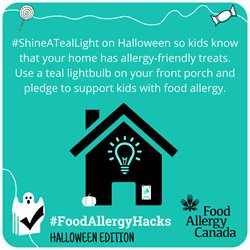Be prepared for an allergy season with a twist
 Estimated reading time: 3 minutes
Estimated reading time: 3 minutes
Allergy season is no walk in the park. While others may stop to smell the roses, asthma and allergy sufferers need to stay on high alert for pollen, bees, air pollution, and much more. But this allergy season brings a new twist which could mean a very different experience for all of us. That’s because this is the first allergy season that we’re experiencing post-COVID-19 pandemic. To find out how you can continue having fun outdoors without constantly worrying about your allergies and/or asthma, keep reading.
First, keep track of the changes in the weather and climate that are transforming allergy season.
As we experience warmer and warmer temperatures year over year, it can be hard to remember that the nice weather isn’t just an indicator for how early we can begin patio hopping. It also affects pollen emissions. According to Asthma Canada, pollen is the most common allergen in the country and 1 in 5 Canadians suffer from respiratory allergies. Spring and summer are key periods in this allergy cycle, as tree pollen emissions spike in late April to May, while grass and weed pollen are most prominent in late May to mid-July.
What does this mean for us? A recent study estimates that these changes in climate and weather could result in allergy season starting up to 40 days earlier than usual, with annual pollen counts climbing by up to 250%. You can minimize the impact of these changes by reducing your exposure to allergens. Use an air purifier for pet dander, and an AC unit or dehumidifier as needed. Plan your outdoor activities on low pollen count days, and wash your clothes and things after being outside. For kids, make sure to label their lunch boxes and belongings with allergy stickers and labels.
Second, learn to tell the difference between allergies and COVID-19 this allergy season.
In the past we only had to worry about allergy symptoms being mistaken for the flu. Now, there’s another option to consider. That is, that your symptoms could be caused by COVID-19. While you may not be able to get your allergy test(s) done right away, ruling out COVID-19 may be more accessible. Find out whether your symptoms match COVID-19, the flu, or allergies by getting tested as soon as possible.
Third, find out which specific allergies you should watch out for.
Some of the most common allergens are seasonal, but these go way beyond pollen. Mold, pets, dust, and insect venom can cause mild to severe allergies in the general population. Allergic reactions to drugs are also common, with antibiotics, aspirin, anesthetics, and chemotherapy drugs being most prominent. Latex allergies typically surface after repeated exposure to natural rubber latex. They most seriously affect healthcare workers, patients with multiple surgeries, or workers with occupational exposure.
So how can you tell if you’re allergic? Well, you may have an allergy if you experience:
- Red, itchy, burning, or watery eyes
- Hives, itchiness, or redness of the skin
- Runny nose or sneezing
- Difficulty breathing or shortness of breath
- Swelling of the tongue or throat
- Dizziness or severe headaches
- Stomach cramps, nausea, or diarrhea
These are just some of the potential symptoms. If you’re not sure whether you have allergies or exactly what might be causing them, there are several ways to get a proper allergy diagnosis. The first step is speaking with a doctor about your symptoms.
Don’t let knowledge gaps stop you from living your best outdoor life.
Although they can be scary, especially when first diagnosed, allergies are manageable. Just ask MedicAlert subscriber Kelly. Remember to stock up on the allergy treatments, including sprays, steroids, and antihistamines that work for you. And always wear your MedicAlert ID so that others can help you in case of emergency! Whether it’s a stroll through the park or the family potluck, MedicAlert is here for you.
*All content and information on the MedicAlert blog is for informational and educational purposes only. No material on this site constitutes professional medical advice and MedicAlert is not liable for risks or issues associated with using or acting upon the information on this site. Although we strive to provide accurate general information, the information presented here is not a substitute for professional advice. Always consult a medical professional or healthcare provider for medical advice, diagnosis, or treatment.



.png?width=352&name=MicrosoftTeams-image%20(2).png)